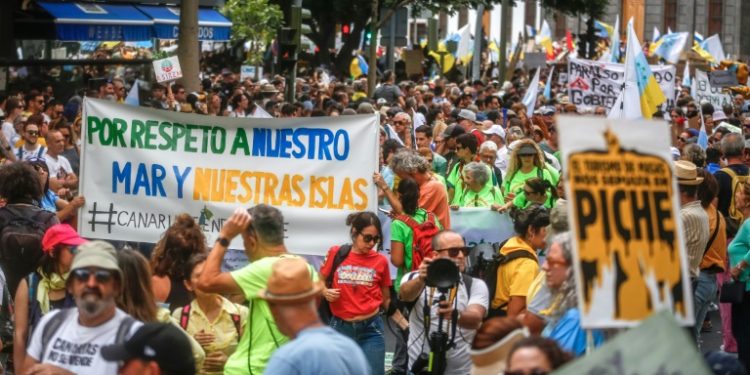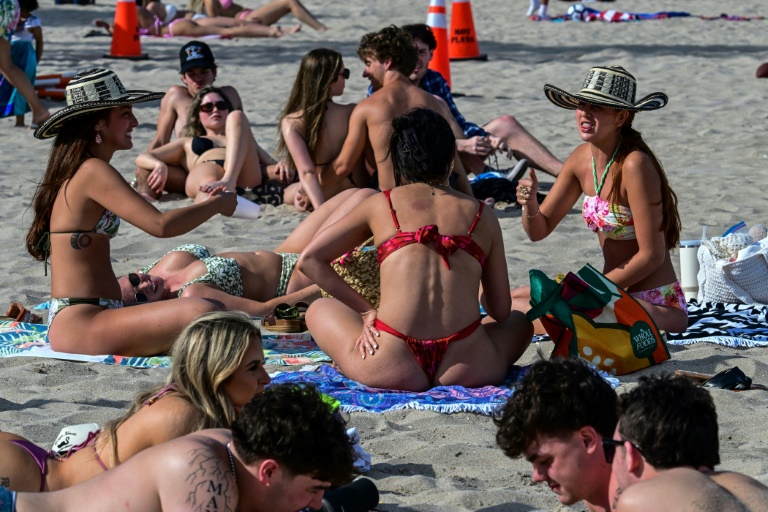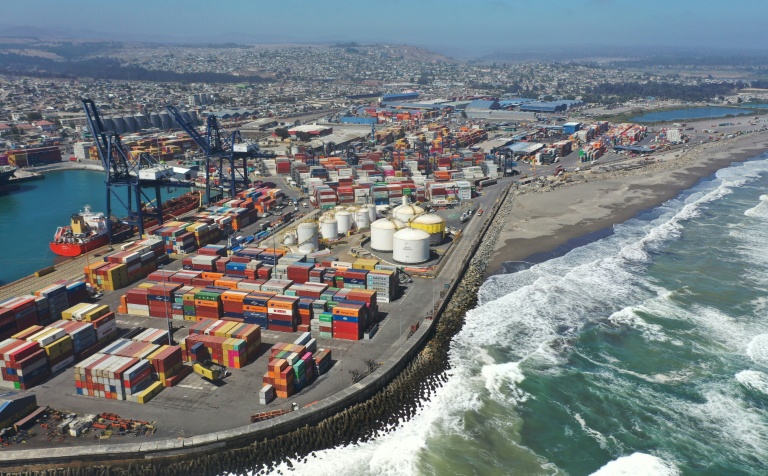Madrid (AFP) – Tens of thousands of demonstrators hit the streets of Spain’s Canary Islands on Saturday to demand changes to the model of mass tourism they say is overwhelming the Atlantic archipelago. Rallying under the slogan “The Canary Islands have a limit”, demonstrators began protesting at midday (1100 GMT), with flag-waving crowds packing the streets of the main towns across all of the archipelago’s seven islands.
An estimated 57,000 people joined the protests, Spanish media reports said, citing the central government’s representative in the islands. Chanting and whistling, they waved a sea of placards and banners emblazoned with slogans like “The Canary Islands are not up for sale!” or “A moratorium on tourism” while others simply said: “Respect my home”.
The protests were called by some 20 social and environmental groups who say tourist overcrowding perpetuates an economic model that harms local residents and damages the environment. They want the authorities to limit the number of visitors and have proposed introducing an eco tax to protect the environment, a moratorium on tourism and to clamp down on the sale of properties to non-residents.
“We are not against tourism,” one woman demonstrator called Rosario Correo told Spain’s TVE public television. “We’re asking that they change this model that allows for unlimited growth of tourism.”
Last year, 16 million people visited the Canary Islands, more than seven times its population of some 2.2 million, which the collective says is unsustainable for the archipelago’s limited resources. – ‘Invaded’ -“We’re tired of the overcrowding, of low salaries, of not having houses to live in and seeing our land bought by foreigners because they have the money to buy our grandparents’ land that we can’t afford,” 59-year-old teacher Nieves Rodrigues Rivera told AFPTV. And the constant influx of visitors was exacerbating the housing crisis by pushing up rents, said 22-year-old student Antonio Samuel Diaz Garcia.
“We’re seeing holiday homes invading our villages which pushes rents up and makes it increasingly difficult for young people like us to leave home,” he told AFPTV. “We’re also seeing tourism destroy the biodiversity here.”
Large crowd of protesters also held parallel rallies of support in Madrid and Barcelona, public television said. Anti-tourism protests have multiplied in recent months across Spain, the world’s second-most visited country, prompting authorities to try to reconcile the interests of locals and a lucrative sector that accounts for 12.8 percent of Spain’s economy.
The islands, which lie off the northwestern coast of Africa, are known for their volcanic landscapes and year-round sunshine attracting millions of visitors every year, with four in 10 residents working in tourism — a sector which accounts for 36 percent of the islands’ GDP. Before the pandemic brought the global travel industry to its knees in 2020, overtourism protest movements were already active in Spain, notably in Barcelona. After travel restrictions were lifted, tourism surged with Spain welcoming a record 85.1 million visitors last year.
© 2024 AFP




















